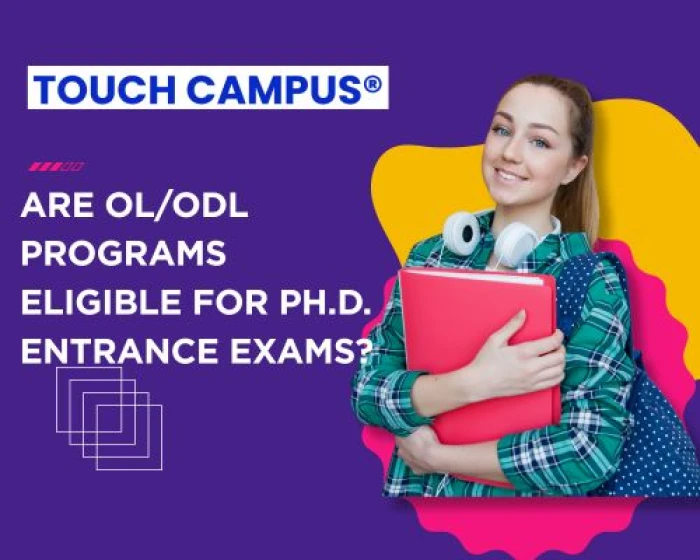Blog Body:
Studying practical subjects like science labs, computer programming, or engineering workshops might seem challenging in Online Learning (OL) or Open and Distance Learning (ODL) programs. After all, hands-on experience is important in such courses. So how do OL/ODL programs handle these practical components effectively?
Let’s dive into how practical subjects are managed in OL/ODL modes and what you, as a student, can expect.
1. Study Material and Virtual Labs
Many OL/ODL programs provide detailed study materials, videos, and simulations to help you understand practical concepts.
Virtual labs: Some courses offer interactive virtual labs where you can perform experiments or practice simulations online.
Multimedia tutorials: Videos and animations explain step-by-step procedures, making it easier to grasp practical knowledge remotely.
These resources ensure that theory and practical concepts go hand-in-hand, even without physical presence.
2. Contact or Study Centers for Hands-On Practice
OL/ODL universities often have tie-ups with regional study centers or partner institutes where students can attend practical sessions.
You may be required to visit these centers for a few days or weeks during the semester.
Practical classes, workshops, or lab sessions are scheduled to provide real-world hands-on training.
These sessions are supervised by qualified instructors to guide you through the exercises.
This blended approach helps maintain the quality of practical education.
3. Project Work and Assignments
Practical subjects often include project work that you complete at home or at a designated place.
Projects may involve designing, building, coding, or conducting experiments.
You submit detailed reports, photographs, videos, or presentations to demonstrate your work.
Faculty or mentors review and evaluate your submissions carefully.
This not only tests your skills but also encourages self-learning and creativity.
4. Practical Exams and Viva Voce
To assess practical skills, universities conduct exams in one of the following ways:
On-campus practical exams at study centers where you perform experiments or tasks under supervision.
Online viva voce (oral exams) via video calls where you explain your practical work or projects.
Submission-based evaluation of practical reports or recorded demonstrations.
These evaluations ensure that you meet the required standards for practical competencies.
5. Flexibility and Convenience
The OL/ODL mode’s key advantage is flexibility. Practical sessions are often scheduled in a way that suits working professionals and students with other commitments.
You get time to prepare and plan your visits to study centers.
Virtual labs and recorded content allow practice anytime, anywhere.
This approach makes practical learning accessible without compromising quality.
Final Thoughts
Practical subjects in OL/ODL programs are handled thoughtfully through a mix of virtual resources, study center sessions, project work, and practical exams. This ensures you get the necessary hands-on experience and skill development despite distance learning.
If you choose an OL/ODL program with well-structured practical components, you can build strong practical skills and confidently pursue your academic and career goals.







